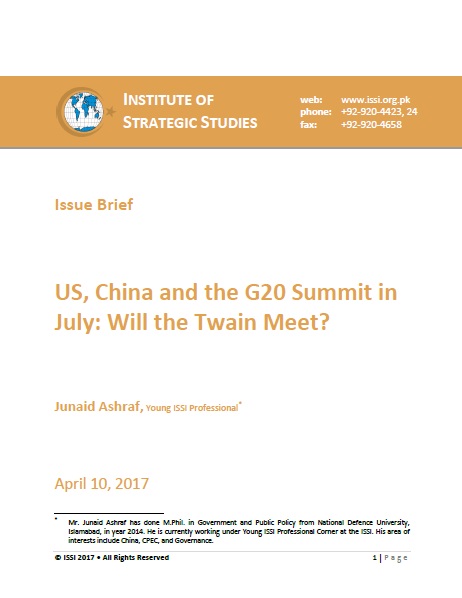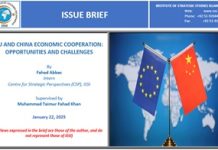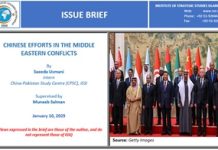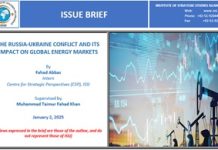The future of global dynamics is uncertain after selection of Donald Trump as the President of the United States of America. The implications of Mr. Trump’s policy orientation could also be seen at the Group of Twenty (G20) meeting in Baden-Baden, Germany, that took place on March 17-18, 2017.[1] The communiqué issued by the finance chiefs at the G20, shifted from a decade long agenda of “resist all forms of protectionism”, to one with a milder tone based on “working to strengthen the contribution of trade to our economies.”[2] The US administration’s stance appears to have prevailed, despite objections from many countries including China.
The G20 is an international forum that brings together the world’s leading industrialized and emerging economies. The group accounts for 85 percent of world GDP and two-thirds of its population.[3] The members include Argentina, Australia, Brazil, Canada, China, France, Germany, India, Indonesia, Italy, Japan, South Korea, Mexico, Russia, Saudi Arabia, South Africa, Turkey, United Kingdom, United States, and the European Union. The G20 was formed in 1999 to give developing countries a more powerful voice in developing the global economy.[4] However, at the latest meeting in Germany, G20 members have shown an inclination towards protectionism under the pressure of America.















